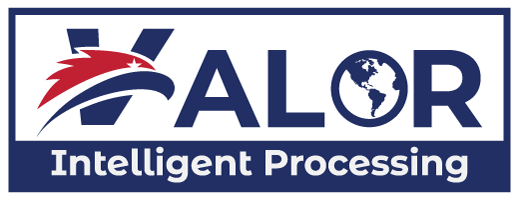Getting paid on time matters a lot to business owners in Texas. Whether you’re dealing with large invoices or frequent small-balance payments, a reliable approach to collecting is key to keeping your cash flow steady. But even with strong intentions, many businesses fall into the same traps when trying to collect overdue payments. These missteps can delay or even derail recovery efforts completely.
With late summer approaching in Dallas, it’s a fitting time to take a fresh look at your approach. Mistakes in debt collection don’t just affect profits. They can also damage relationships, create compliance risks, and tie up your team with unnecessary stress. Some of the most common collection errors are avoidable with just a little awareness and the right planning.
Ignoring State-Specific Regulations
One of the biggest mistakes is not taking the laws in Texas seriously. Each state has its own rules about how debt can be collected, and ignoring them can lead to a lot of trouble. Businesses that don’t follow Texas-specific laws might end up with fines, lawsuits, or regulatory issues that could have been avoided.
For example, the Texas Debt Collection Act lays out how creditors and collectors must treat consumers. Ignoring these rules can result in claims of harassment or unfair practices, even if that’s not what you intended. Some businesses assume what worked well in other states will work here too, but that’s not always the case.
To avoid this mistake:
– Understand Texas’s rules regarding collection calls, timing, and written notices
– Don’t use language that can be seen as misleading or threatening
– Maintain accurate records of all communication with the debtor
– Avoid calling at odd hours or continuing contact after a legal request to stop
– Be cautious with accounts involving military personnel or those with special protections
Making small thoughtful changes helps you stay on the right side of the law while making progress. It also helps you build trust with the people you’re contacting.
Inadequate Communication With Debtors
How you talk to people who owe you money makes a big difference. Some businesses rely on pushy language or generic scripts, thinking that pressure will bring fast payments. That strategy often backfires. It may cause debtors to avoid contact altogether.
Respectful and clear communication opens the door to cooperation. This approach doesn’t mean you have to go easy—it just means you should be strategic with your tone, timing, and message. When people feel like they’re treated fairly, they are more likely to engage and work with you toward resolving the debt.
Here are a few ways to encourage more effective communication:
– Use calm and professional language, no matter how frustrated you are
– Avoid threats or condescending language
– Stick to the point to keep messages short and clear
– Space out your reminders to avoid overwhelming them
– Test different outreach methods—phone, text, or email—to see what works best
For example, if a client has been late twice, instead of following up aggressively every day, try sending one thoughtful, polite message that acknowledges the issue and invites a quick call or reply. This creates room for conversation, not conflict.
Communicating this way helps your business maintain its reputation and opens the door to more resolutions, not resistance.
Skipping Personalized Payment Plans
Another common misstep? Offering cookie-cutter payment options. Everyone’s financial situation is different. Being too rigid with payment plans can push overdue accounts even further out of reach.
A thoughtful, flexible payment structure gives people a real shot at catching up—especially when they’re already juggling other responsibilities. Without flexible options, customers may delay repayment longer or stop responding altogether.
In Dallas, where budgets may shift dramatically depending on the season or industry, flexibility can be the difference between a resolved account and a dormant one.
Consider these ideas when creating payment plans:
– Offer plans in weekly, bi-weekly, or monthly installments based on pay schedules
– Let customers choose the payment date they’re most likely to stick with
– Be open to reworking terms if their situation changes
– Keep following up, but do so politely after a missed payment
Let’s say someone missed work for a week due to a heatwave and fell behind on bills. A rigid one-time full payment demand might not work. But breaking it into smaller payments or giving a short grace period might lead to a full recovery.
Compassion doesn’t mean compromising your results. It often leads to better outcomes for both sides.
Ignoring Technology’s Role in Timely Recoveries
Too many businesses still rely on outdated collection methods—manual tracking, stacks of paper invoices, or sending the same message repeatedly. This not only slows things down but increases the risk of errors or missed follow-ups.
Today’s customers are used to digital interactions. If you’re not using technology, you risk being left behind.
What skipping tech could lead to:
– Slower communication or missed outreach
– Inconsistent records that limit your tracking ability
– Hours wasted on manual tasks like data entry or mail handling
– Overdue accounts lost in the shuffle
Instead, using modern tools can help you stay on top of every step. With the right software, you can:
– Send automated reminders and updates
– Track calls, emails, and all digital contact
– Generate easy-to-read reports
– Spot trends that need action sooner
Technology can help you catch a slipping account before it gets out of hand. You’ll have more time to focus on problem-solving instead of chasing paperwork. It doesn’t replace human contact—it makes that contact more strategic and useful.
Undertrained Staff Lead to Missed Opportunities
It takes more than just a script and phone access to recover funds. Collections staff need real-world training on compliance, tone, and documentation. Without the right preparation, errors stack up fast.
An untrained or undertrained collector may:
– Say something that crosses legal lines
– Miss clues that the person is willing to pay with a different approach
– Respond inappropriately in tough conversations
– Fail to document agreements or updates correctly
Texas has its own rules around frequency and timing of contacts, consumer rights, and dispute handling. It’s important that every member of your team understands these parameters and can spot issues before they spiral.
Effective training should cover:
– What timeframes and limits are set by law
– How to document each conversation
– When and how to escalate certain accounts
– Listening skills so reps understand the bigger picture
A trained team is more confident and gets better results. They know when to push, when to pause, and how to keep things moving in the right direction.
Building a Smarter Collection Strategy
All the collection mistakes above have one thing in common—they lead to more work and weaker results. When businesses in Texas do not take time to review and adjust their process, they end up wasting effort and losing opportunities.
A smarter collection strategy covers:
– Staying up-to-date on Texas law and following it
– Communicating with clarity, professionalism, and respect
– Offering payment options that match real-life situations
– Using technology to increase efficiency and cut lag time
– Giving your collection team strong, ongoing training
As summer shifts to fall in Dallas, it’s a great time to clean up your approach. Take a close look at your collection practices. Where are people falling off? Are follow-ups being handled well? Is your process aligned with state rules?
Small adjustments can go a long way. Changing your collection strategy doesn’t mean starting from scratch. It means refining what’s already in place so that your business gets paid and keeps its reputation intact. Taking smart steps now can bring better results just in time for the new season.
If you’re ready to improve your debt collection strategy, explore how our first-party collection services can help streamline your approach. Valor Intelligent Processing is committed to ensuring transparent and effective results through compliant and professional debt collection in Texas. See how we can support your business with a smarter, more efficient system for managing accounts receivable.


